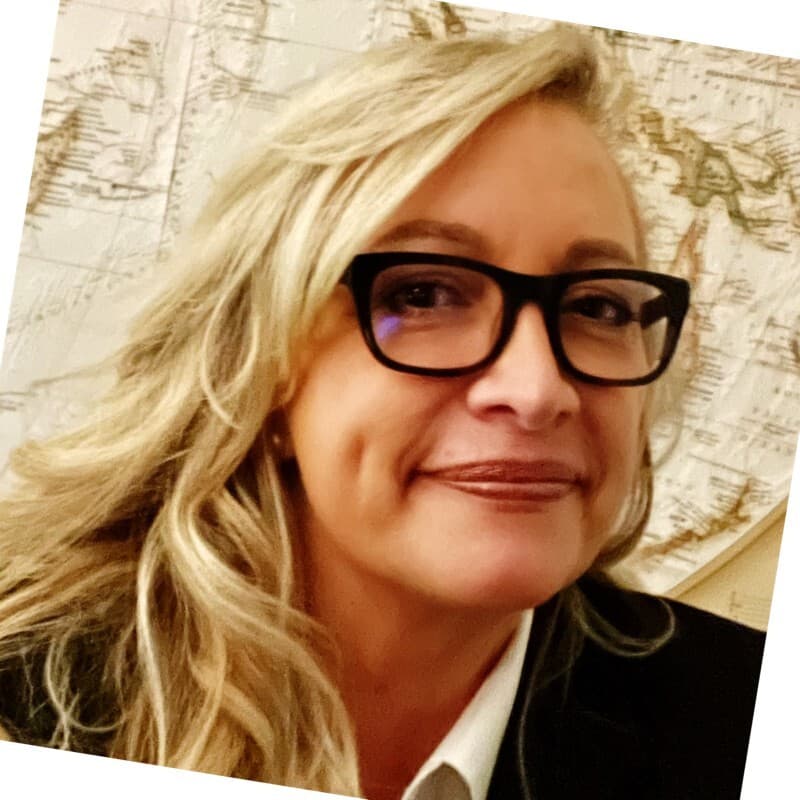/ EPISODE 66
On the Full Potential of OKRs through Mentoring and Coaching
GUESTS

Elie Casamitjana
Co-Founder and CEO at Impactivs and OKRmentors
Listen on
Listen on
Google Podcasts
Listen on
Pocket Casts
Listen on
Spotify
Listen on
Apple Podcasts
Listen on
Stitcher
or use this URL in your favorite podcast app: https://feeds.transistor.fm/dreams-with-deadlines
Episode notes
When it comes to OKRs, nothing predicts success like patience and flexibility. And on this episode of Dreams with Deadlines, we find out why from Elie Casamitjana, co-founder and CEO of Impactivs and the visionary behind OKRmentors.
A globally recognized expert in all things OKR, he joins Host Jenny Herald to explore the kinds of workplace cultures best suited to implementing this change management framework, especially during challenging economic times. He’s sharing thoughts on fostering engagement and lessons learned about the best predictors for — and deterrents to — successful adoption.
What you will learn
- The difference between vertical and horizontal approaches when it comes to effective implementation of OKRs across varying geographies and cultures.
- What Elie considers some of the basic prerequisites for companies that want to ensure sustainable change management.
- How rigid, top-down workplace cultures generate resistance to the OKR methodology — while agility and communication are precursors of success.
- Why OKR frameworks can be applied with great results in times of crisis — if leadership understands how to be nimble and bring the whole team along.
Show notes
- [00:00:30] Origin Story: How Elie first incorporated OKRs to inspire and empower distributed teams working together to build, launch, and manage tech products.
- [00:02:40] What Drives Elie: Why a desire to effect change and equip teams to fulfill their social and environmental missions has been foundational to starting up both Impactivs consulting and OKRmentors’ certified training and master classes.
- [00:04:15] Emerging Network: A closer look at the OKR Forum International and other ways in which evangelists are pooling their expertise to train and connect practitioners.
- [00:06:00] The story behind Elie’s book: "La méthode OKR : Objectives & Key Results - le guide pratique (Le management en pratique)," a practical guide to managing OKRs.
- [00:07:40] Vertical v. Horizontal: Why cultural and geographical nuances require understanding and programming that accommodates varying workplace styles.
- [00:09:30] Prerequisites that set the stage for OKR adoption success:
- An agile approach that integrates fluid, bottom-up planning and adaptation
- A clearly defined champion (or team) consistently leading the charge and keeping things on track
- Upfront understanding that iterations are unavoidable and to be expected
- Thoughtful, deliberate strategies around team engagement and buy-in
- [00:12:05] Elie’s Take on Common Misconceptions about the OKR Methodology:
- We’ve already defined our goals. (The process, in fact, goes far beyond goal-setting or objectives to integrate practically and operationally.)
- We’re already using more than enough KPIs to measure results. (All indicators are not created the same, nor do they all incorporate necessary priorities.)
- OKRs are set and forget – a glorified “to-do” list. (This completely misses the importance of active discussion and the iterative process necessary for success.)
- [00:15:45] Culture & Need: OKR adoption works less well for organizations that are:
- Managed primarily top-down
- Committed to rigid long-term planning
- Resistant to transparency and communication
- Reluctant to empower teams and give them autonomy
- Already running smoothly and not interested in implementing transformation
- [00:18:33] Recession Preparedness: How OKRs can be kept relevant and deployed as effective tools for clear, agile decision-making and realignment in fluid crisis situations.
- [00:22:35] Why Recovery (and Staying Nimble) Matters: OKRs are a means, not an end, to adjusting focus, reinventing value props, and maintaining relationships.
- [00:25:43] Elie Shares a Successful OKR Case Study:
- Significant ROI achieved by helping to define strategic goals and operational variables (like packaging and pricing) at Wecandoo, a French platform supporting a global marketplace for craftspeople and artisans to share their expertise.
- [00:29:36] There Will Be Challenges: How (especially legacy companies) often struggle with change management and why communication problems demand … more communication to clarify, engage, excite, promote empathy, and foster long-term buy-in across teams and departments.
- [00:32:48] What Sustained Change Management Absolutely Requires:
- An investment of time.
- Leadership and effective sponsorship.
- Robust, repetitive, ongoing communication.
- Patience with the process!
- [00:39:57] Quick-Fire Questions for Elie:
- What’s your Dream With a Deadline? Inspiring mission-driven leaders committed to making a better, healthier world the mainstream standard.
- Why are you so passionate about OKRs? They provide a simple framework to take missions from vision into action and reality.
- What was your greatest strategic execution fail, and what did you learn? Change works best when people feel like they are part of the decision-making process – a lesson learned by having unsuccessfully tried the top-down approach!
- What do you think is the future for OKRs? The more they are integrated across industries and leadership styles, the more the framework will become a seamless part of the organic fabric of workplace cultures.
- What advice would you have given your earlier self about the OKR practice? Surround yourself with good support and expertise!
- What is a book that has largely shaped how you think? It’s a mix of books, podcasts, and other media highlighting the stories of entrepreneurs and leaders who have demonstrated resilience and the ability to make change happen!
- What’s your current favorite podcast? Guy Raz's “How I Built This.”
Relevant links
- "La méthode OKR : Objectives & Key Results - le guide pratique (Le management en pratique)," by Elie Casamitjana
- "Powerful: Building a Culture of Freedom and Responsibility," by Patty McCord, who was Chief Talent Officer at Netflix




